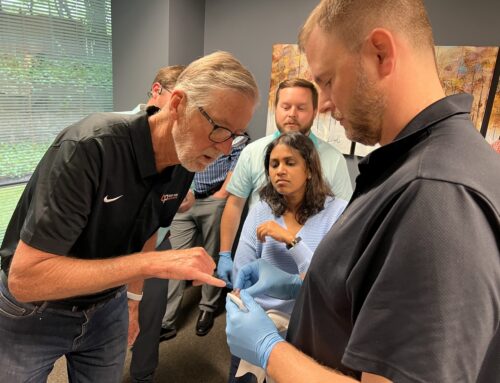As we step into a new year, many of us are making resolutions to improve our lives, both personally and professionally. For dentists, considering a resolution to delve into continuing education in dental sleep medicine and craniofacial pain could be a transformative decision.
These specialized fields hold the potential not only to enhance the scope of dental practice but also to make a significant impact on patients’ overall health and well-being.
Expanding expertise for comprehensive patient care
Dental sleep medicine and craniofacial pain are integral components of comprehensive dentistry, addressing issues beyond the conventional realm of oral health. By investing time and effort in continuing education in these areas, dentists can broaden their expertise, enabling them to identify and manage conditions such as sleep apnea, bruxism, and temporomandibular joint disorders more effectively. This expanded knowledge allows for a more holistic approach to patient care.
Meeting the growing demand
With an increasing awareness of the interconnection between oral health and systemic well-being, the demand for dental professionals with expertise in sleep medicine and craniofacial pain is on the rise.
Patients are seeking practitioners who can offer comprehensive solutions to issues like snoring, sleep disturbances, and chronic facial pain. By resolving to engage in relevant continuing education, dentists position themselves to meet this growing demand and become leaders in their field.
Enhancing collaborative care
Dental sleep medicine and craniofacial pain often require collaboration with other healthcare professionals, including sleep physicians, neurologists, and otolaryngologists. Pursuing continuing education in these fields fosters an environment of interdisciplinary collaboration, allowing dentists to work hand-in-hand with other specialists to provide well-rounded and personalized care for patients dealing with sleep-related and craniofacial pain issues.
Improving patient outcomes and quality of life
Beyond the dental chair, the impact of resolving to pursue education in these specialized areas reaches into the lives of patients. Effective management of sleep disorders and craniofacial pain can significantly improve patients’ quality of life, contributing to better overall health outcomes.
Dentists armed with knowledge in these fields can positively influence their patients’ sleep patterns, reduce pain, and enhance their overall well-being.
Staying ahead of technological advances
The field of dental sleep medicine and craniofacial pain is dynamic, with continuous advancements in diagnostics and treatment modalities. Making a resolution to stay updated through continuing education ensures that dentists remain at the forefront of these developments, providing state-of-the-art solutions to their patients and keeping their practices modern and competitive.
A New Year’s resolution to pursue continuing education in dental sleep medicine and craniofacial pain is a commitment to excellence, patient-centric care, and professional growth. By embracing these specialized areas, dentists position themselves not only as oral health experts but also as integral contributors to the overall health and well-being of their patients.






